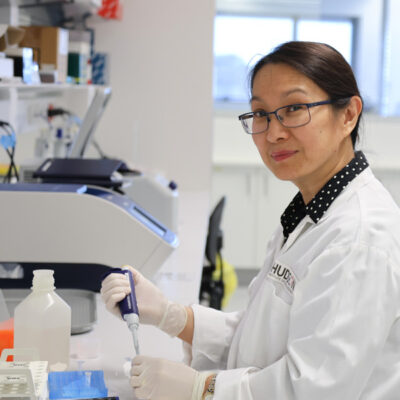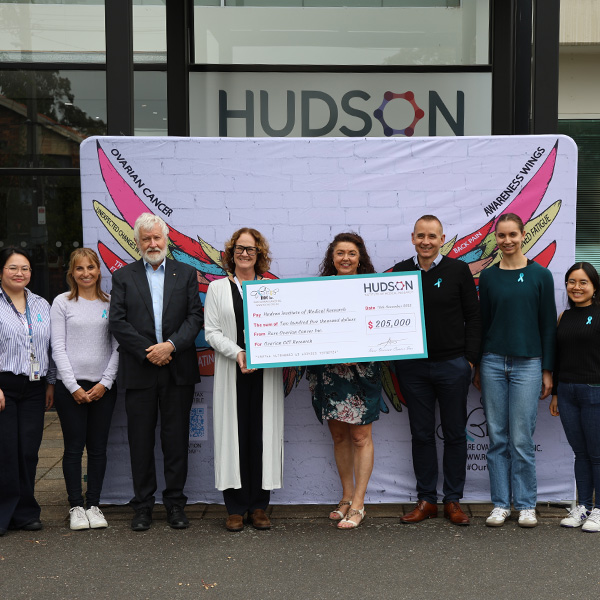Lifetime achievement award for reproductive health research
By Hudson Institute communications
Women’s reproductive health expert Professor Lois Salamonsen has been awarded a prestigious Lifetime Achievement Award, acknowledging her extensive contributions to human health and wellbeing.

Presented to Prof Salamonsen by the Faculty of Medicine Nursing and Health Sciences, the Lifetime Achievement Award is the most prestigious accolade in the Health Sciences at Monash University. Prof Salamonsen’s contributions have led to major advances in our understanding of female contraception, menstruation, gynaecological conditions and infertility.
“I am very humbled by this award which has been made possible only by the many younger scientists and students who have worked with me over the past 40 years. Their outstanding work has increased our understanding of the biology of the endometrium, the lining of the womb. This underpins advancements made in many issues of women’s health, including abnormal uterine bleeding, infertility and lack of success with IVF, endometriosis, endometrial cancers and new targets for non-hormonal contraception,” Prof Salamonsen said.
Prof Salamonsen headed the Uterine Biology group at the previous Prince Henry’s Institute and was the inaugural Head of Hudson Institute’s Centre for Reproductive Health from 2014 to 2016. She has been a leader in the field of endometrial biology for the last 30 years. She continues to be passionate about understanding how changes in the endometrium impact female reproductive health.
“I work particularly on the endometrium, the lining of the uterus. The endometrium is a truly remarkable tissue—it completely rebuilds itself after menstruation, 350–400 times in a woman’s life,” Prof Salamonsen said.
An innovator in reproductive research
Prof Salamonsen’s scientific research has been translated to medical outcomes for reproductive health worldwide.
To improve the success rate of assisted reproduction technologies, such as IVF, her team has developed a tool that will tell doctors whether or not to replace the embryo in a cycle of treatment when it’s retrieved, or to freeze it and wait for another cycle. She has also discovered novel mechanisms underpinning embryo-maternal cross-talk, crucial information for embryo implantation.
In addition, her novel approaches to developing non-hormonal contraceptives and her understanding of the negative effects of long-acting steroid contraceptives has led to a shift in contraception research.
Prof Salamonsen has published more than 270 peer-reviewed endometrium related scientific papers, reviews and book chapters, with >16,000 citations. She has received countless awards and accolades. During her career she has been an inspiration and mentor for women in science and continues to be a pioneer in reproductive research worldwide.
About Hudson Institute
Hudson Institute’ s research programs deliver in three areas of medical need – inflammation, cancer, women’s and newborn health. More
Hudson News
Get the inside view on discoveries and patient stories
“Thank you Hudson Institute researchers. Your work brings such hope to all women with ovarian cancer knowing that potentially women in the future won't have to go through what we have!”





